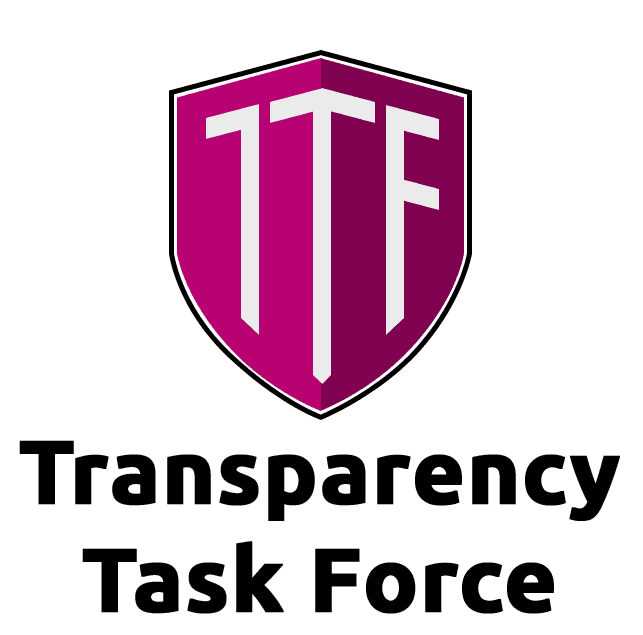Online symposium using interactive Zoom.
Thursday, July 2nd, from 6:00pm until 8:00pm, UK time
With much thanks to our event sponsor:
Other sponsorship opportunities available – please get in touch


Executive Summary;
Scroll down for the programme and to make bookings
This Symposium is an important thought leadership event dedicated to discussing and debating what more can be done to mitigate the risk of yet another financial crisis.
It is now some 12 years since Lehman Brothers collapsed; an event so shocking that it sent the world economy into cardiac arrest.
And of course, we are still in the depths of a global recession caused by Covid-19.
It is difficult to escape the harsh reality that both of the most recent financial crises were predicted; and in both cases it seems that the warning signs were ignored.
This begs the question: what exactly are experts saying now, about potential triggers of future crises that shouldn’t be ignored?
…and if their warnings are being ignored; why?
Hundreds of thousands of pages of analysis have been published about the Global Financial Crisis; perhaps the most shocking statistic is that according to Oxford University research it resulted in an additional 100,000 suicides – caused by the consequences of people losing their jobs, homes, and resultant family break-ups.
Reckless risk-taking by banks around the world had magnified the market failings of the world’s financial ecosystem. Massive bailouts of financial institutions and other palliative monetary and fiscal policies were employed to prevent a possible complete collapse of the world financial system. The Global Financial crisis was nonetheless followed by a global economic downturn, the Great Recession and a catastrophic crisis in the banking system across Europe.
Capitalism was in complete crisis; just as communism had been some 19 years earlier.
In the USA, the Dodd-Frank Act was enacted in the aftermath of the crisis to “promote the financial stability of the United States” and the Basel III capital and liquidity standards were adopted by countries around the world.
But how much of that protective policymaking has since been reversed?
…and why were even people like Bill Gates, with his startlingly accurate prediction of a pandemic-triggered financial crisis, not taken seriously by those in charge of the system; the very people charged with taking care of something of immeasurable importance to us all – financial stability itself.
Financial Stability underpins our very way of life. Democracy, Capitalism and even Freedom rely on financial stability to exist; we must never take them for granted.
It’s a scary thought to acknowledge that there are alternatives to all three – just as tens of millions of people around the world can tell us, because they live within the alternatives every day of their lives.
There is so much to be looked at when considering the causes and consequences of the last two Financial Crises; and even more importantly the big question:
“Can we be sure that enough is being done to prevent yet another crisis?”
Consider these factors, that most agree have played a part in one or both of the last two disasters:
– Widespread ignoring of risk management data on pandemic risks
– Over-easy credit conditions
– Weak and fraudulent underwriting practices
– Predatory lending
– Growth of the housing bubble
– The subprime mortgage bubbles
– Financial over-innovation and over-complexity
– Collateralized debt obligations
– The commodities boom
– Over-leveraging by institutions around the world
– The ‘Too big to fail’ mind-set
– Deregulation
– Incorrect pricing of risk
– Boom and collapse of the shadow banking system
– The inherent instability and systemic risks of crises within capitalism
– Widespread failure of economic forecasting – economists ‘asleep at the wheel’
– The shouts by those who did see it coming not being heard; or perhaps even worse – heard but completely ignored
– Governance failures
– Conflicts of interests
– Debt dependency
– Behavioural finance issues and the underlying human conditions of fear and greed
– Opaque credit markets
– A misunderstanding of the organic nature of contagion risk
– Short-termism
– Poor stewardship of capital
– Over-leniency towards those who are to blame
– A lack of court proceedings and prosecutions
Here’s a couple of interesting questions:
“How many of those factors are rooted in a lack of transparency?”
“How many of those factors are actually still with us today?”
The socio/political fallout of the Global Financial Crisis has been staggeringly impactful. Consider these issues:
– Austerity policies being implemented around the world
– The rise of Donald Trump
– Brexit? …and so much more.
The consequences of the Crash have been unimaginably far-reaching, with a devastating impact on many aspects of life around the world.
We’ll be taking a look at key questions such as:
– What really caused the Global Financial Crisis?
– Who was “asleep at the wheel”?
– Have the lessons been learned?
– Have the Regulators done enough to prevent a repeat?
– Who is actually responsible for preventing another Crash?
– Could it happen all over again?
– What has been the true impact of Quantitative Easing – and who is really paying the price for it?
– Could greater transparency reduce the chances of a reoccurrence?”
– Does the current pandemic-triggered crisis mean the chances of having another financial ecosystem-crisis are reduced? – or could we have the “perfect storm” i.e, the nightmare scenario of one crisis starting before another has finished; double-trouble so to speak
– Could the ‘worst case scenario” just described cause a complete meltdown of our system as we know it?
Our overall purpose for the event is to shine a very bright light onto this important topic; in keeping with the TTF’s overall mission which is to encourage ongoing reform of the financial services sector, so that it serves society better.
All in all, this symposium is a “not to be missed” event for anybody keen to stay in touch with the complex issues surrounding financial stability, related policymaking and regulatory interventions.
Who should participate?
This symposium is going to bravely attempt to deal with questions of immense importance to everybody. We’re expecting it to be a very stimulating, engaging and thought-provoking session of particular importance to:
- Economists
- Asset Managers
- Industry Observers, Commentators; the Media in General
- Academics and researchers
- Pensions Policymakers and Regulators; UK and overseas
- Pension scheme trustees; professional and lay
- Parliamentarians with an interest in the economy and market conduct
- Members of the Department for Work & Pensions
- Members of the Financial Conduct Authority
- Members of the Competition & Markets Authority
- Members of the Prudential Regulation Authority
- Members of the Bank of England
- Members of the Department for Business, Energy and Industrial Strategy
- Members of the Government Actuarial Department
- Bankers and representatives of Banking organisations
- Risk Management Professionals
- Compliance Professionals
- Legal Professionals
- Pension Professionals
- Financial Services Trade Bodies and Professional Associations
- Academics and researchers in governance, stewardship, ethics, conduct and compliance in the banking, investment and pensions space
- Pension Providers including MasterTrusts
- Think Tanks and Civil Society Groups with an interest in pensions and investment policymaking
- Wealth managers and financial planners
- Actuaries; and many more



What’s the purpose of this symposium?
This symposium represents one more step forward in our collective efforts to galvanise support for positive, progressive and purposeful finance reform.
Our event is part of a major international initiative about creating an over-arching framework for finance reform. At the heart of that framework for finance reform are the 12 Finance Development Goals that we are developing with the many TTF members around the world.
We already know that the financial services sector as a whole has a significant reputation problem – the key takeaway from the Edelman Trust Barometer is:
“…at 57 percent trust among the general population, financial services remain the least-trusted sector measured by the Trust Barometer.”
…and that’s obviously a major issue for a sector that has to be trusted to function successfully.
It is clear that there is far too much adverse publicity about the financial services sector; and that it is having a long-lasting and highly damaging effect on the reputational integrity of the sector.
This is a serious and systemic issue that needs to be resolved.
Our symposium creates a first-class opportunity for a wide range of stakeholders to share their thoughts around what needs to be done; how best to do it and who should take responsibility for fixing what seems to be broken; or at least very badly damaged.
You can expect to be ‘amongst’ progressively minded and collaboratively minded people.
On the basis that “progress begins with realism” we’ll be we will be running the event as a forum to enable everybody to “say it as they see it” and thereby facilitating the kind of candid yet constructive discussion that is needed to help move matters forward.
We don’t think any one person or organisation has all the answers; and we also think that all answers are worth listening to, so if you’ve got a point of view that you’d like to share, and are keen to hear the views of others, this is definitely an event for you.


Here’s the programme and timings, so far*
18:00
Welcome to the symposium, introductions and initial exploration of the main issues; plus “Why we must rebuild trustworthiness and confidence in financial services; and how we can do it” by
Andy Agathangelou FTTF FRSA
Founder, Transparency Task Force; Governor, Pensions Policy Institute; former Founding Chair, Friends of Automatic Enrolment; former Founding Chair, Association of Member Nominated Trustees.

18:15
Presentation #1, for 20 minutes + 10 minutes Q&A with facilitated discussion, by
Keynote:
Professor Steve Keen
Honorary Research Fellow, (VP Research) University College London; former Professor and Head of the School of Economics, History and Politics, Kingston University; Fellow at the Centre for Policy Development; Author of “Can we Avoid Another Financial Crisis?”; former Associate Professor of Economics at the University of Western Sydney.
(1) The huge increase in private debt in the UK (and globally) since the 1980s (in the UK, from 55% of GDP to a peak of 205%, and now about 160%;
(2) Why regulators, following conventional economic theory, don’t see this as a problem (illustrated using a model of the standard “Loanable Funds” vision of what banks do);
(3) Why this is wrong since banks don’t actually lend out depositors funds but instead create deposits when they lend (illustrated by amending the previous Minsky model to have banks originate loans rather than a non-bank);
(4) The necessity to add the private debt to GDP ratio and the credit (change in debt) ratio down to pre-1982 levels in the UK (roughly 60% of GDP, or a full 100% of GDP lower than today; and
https://en.wikipedia.org/wiki/Steve_Keen
Professor Keen’s slides are available to download below.

18:45
Presentation #2, for 10 minutes + 5 minutes Q&A with facilitated discussion, by
Dr. Steve Hubbard
Steve will be talking about the Discussion Paper him and John Hipperson have produced. Its purpose is to to encourage free and open dialogue around some of the fundamental questions that are as yet unresolved in the world of economics.
The Transparency Task Force is very pleased to help raise awareness of the very important points they make and the equally important questions they ask; because only by having an accurate understanding the true workings of macroeconomics, particularly the role of money and how it impacts the world’s financial ecosystem, can we hope to develop the kind of financial stability that society deserves.
Dr. Steve Hubbard’s slides are available to download below.

19:00
Breakout & Report Back Session, on
“What are the greatest challenges to mitigating the risk of another Financial Crisis; and how could they be tackled?” for 15 minutes in total
– 10 minutes for discussion within the Breakout Group
and
– 5 minutes for the Report Back session

19:15
Presentation #3, for 10 minutes + 5 minutes Q&A with facilitated discussion, by
Sheri Markose
Professor of Economics at the University of Essex; Founding Director (2002-2009) at the Centre for Computational Finance and Economic Agents where she pioneered a post graduate curricula for computational agent-based modelling and Complexity Economics. As Senior Consultant (2011-2015), she implemented a digital map of the Indian financial system using network analysis for systemic risk management.
Her most recent public talk on March 2020 is based on her work on the Digital Foundations of Intelligence as an Advanced Form of Cyber Security at the Bank of England panel on systemic risk from AI and Machine Learning.
https://en.wikipedia.org/wiki/Sheri_Markose
Sheri Markose’s slides are available to download below.

19:30
Presentation #4, for 10 minutes + 5 minutes Q&A with facilitated discussion, by
Professor Richard Werner
Former member of Linacre College Oxford; former member of the ECB Shadow Council; former Director of the Centre for Banking, Finance and Sustainable Development; former Professor of Monetary, Macro and Development Economics at Goethe University Frankfurt; former Professor of International Banking at the University of Southampton; former Assistant Professor in Economics and Finance at Sophia University, Tokyo; former Chief Economist and Jardine Fleming Securities (Asia) Ltd; former Senior Managing Director at Bear Stearns Asset Management; formerly selected by the World Economic Forum Davos as a “Global Leader for Tomorrow”

19:45
Open discussion & debate, 10 minutes

19:55
Final conclusions; and suggested next steps, by
Andy Agathangelou FTTF FRSA, Founder, Transparency Task Force; Governor, Pensions Policy Institute; former Founding Chair, Friends of Automatic Enrolment; former Founding Chair, Association of Member Nominated Trustees.
https://www.linkedin.com/in/andy-agathangelou-0295311

20:00
Final close

All places need to be booked in advance, please
Use the button below to book your place.
Once your place is secured, you will be automatically Emailed the details you need to access the event through interactive Zoom – please be sure to enter your Email address correctly.
For any queries please contact us.



